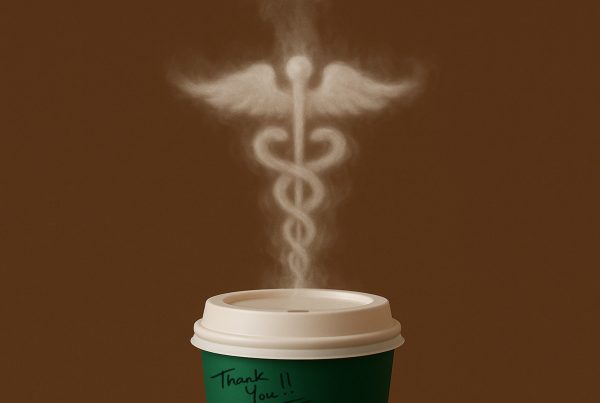2-minute read
The Big Story: New quarterly Jarrard tracking survey finds meaningful movement since January in public perception on a number of key healthcare issues.
There’s been a lot of media coverage taking stock of the public’s perception “100 days in” to the President’s second term. Want to know about healthcare views? We have answers.
In the first in a series of tracking surveys we’ll be doing on key healthcare issues, the Jarrard Market Research & Insights (MRI) team set out to understand whether – or how – the breakneck pace of activity is affecting public perception of healthcare. We looked specifically at some of the key questions we’ve asked previously, including in our benchmark “State of Play” consumer trust survey from January.
Here are four takeaways from our tracking survey, fielded April 18-25 and collecting responses from 800 adults making up a representative sample of the U.S. population (margin of error ±3.5%).
While still challenging, the “Profits over Patients” narrative for hospitals is slightly better. In January, 76% of people said that hospitals put profits over patients, which was up from nearly 70% in the previous two years. It’s now back to 69%. So, while the numbers have improved a bit, a very strong majority of people still have a skeptical view of hospitals’ priorities.
Desire for an overhaul of the system has gone up, while support for more hospital regulation is down. In January, 57% of people said the U.S. healthcare system needed significant reform or a complete redesign. Today, that number is 63%. At the same time, the number of people who say hospitals need more regulation has dropped by 12 points, down to 36%. Notably, support for more regulation has dropped among both Republicans (down 19 points) and Democrats (down 11 points).
Support for potential cuts to healthcare programs is low. In our survey, nearly two-thirds oppose cutting Medicaid, with almost half strongly opposing cuts. Among self-identified Republicans, total opposition to cuts sits at 45%. Fully two-thirds (including half of self-identified Republicans) support continuing ACA subsidies to help people pay for insurance coverage. And two-thirds of people are concerned about the potential impact of tariffs on the cost of healthcare supplies.
This is all taking place during a moment when healthcare has risen in importance among the public. In fact, in four months it’s jumped from fourth to second place, with nearly half of people now picking healthcare as one of the three issues most important to them. Economic issues – which have topped the list since the pandemic’s end – are still number one and are even more important to the public today than before the election.
The numbers tell a story.
They’re telling us that what’s happening nationally in the conversation on healthcare policy is moving public perception. For example, the increasing view that healthcare needs an overhaul is clear. But what form should that take? The desire for an overhaul is bumping up against what that change may look like and whether people want federal and state lawmakers and regulators as the agents of change. (Our survey shows trust in the U.S. Congress to develop positive healthcare policy dropped 8 points since January).
On this point, we think it’s important to emphasize that if people don’t want increased government involvement via regulation at the same time they desire change in our healthcare delivery system, then hospitals have an opportunity. And that opportunity is to step into the moment and be proactive in talking about the positive impact they make in their communities. And what they’re doing – and what they need – to make healthcare better, particularly on the key issues of access and cost.
There’s much more in the full survey. Get in touch with questions or if you’d like the MRI team to talk through the findings.
Contributors: David Shifrin, Natalie Brereton, Jed Lam, Emme Nelson Baxter
Image Credit: Shannon Threadgill




